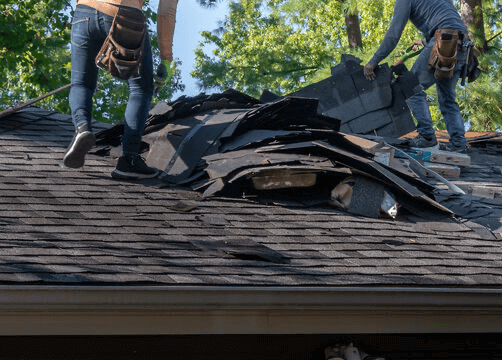Homeowners in Tulsa, Oklahoma are no strangers to the extreme weather conditions that can sweep through the region. Tornadoes, severe thunderstorms, and hail are all common occurrences, and they pose a significant threat to homes and property.
In this article, we will explore the extent to which homeowners insurance covers storm damage in Tulsa, OK. We’ll examine the types of storm-related damage that are typically covered, potential exclusions, and steps homeowners can take to ensure they are adequately protected in the event of a storm.
Understanding Homeowners Insurance
Before delving into the specifics of storm damage coverage, it’s important to have a fundamental understanding of homeowners insurance. Homeowners insurance is a policy that provides financial protection against losses and damages to your home and personal belongings. It typically includes coverage for several types of perils, including fire, theft, vandalism, and storm-related damages.
Types of Storm Damage Covered
- Wind and Hail Damage: Most standard homeowners insurance policies cover damage caused by windstorms, including tornadoes and straight-line winds, as well as hail damage. This coverage typically extends to your dwelling, other structures on your property (such as a detached garage), and personal belongings.
- Lightning Strikes: Lightning can cause fires and electrical surges, which can damage your home’s electrical systems and appliances. Homeowners insurance usually covers these types of damages.
- Fallen Trees and Debris: If a storm causes trees to fall onto your property, damaging your home or other structures, your homeowners’ insurance will likely cover the cost of removing the debris and repairing the damage.
- Water Damage: Some types of water damage resulting from storms may be covered, such as damage from a leaky roof caused by a storm. However, damage from flooding is typically not covered by standard homeowners insurance, as it requires a separate flood insurance policy.
- Roof Damage: Roof damage due to storms is commonly covered, but the extent of coverage may vary depending on your policy. Some policies may have exclusions for cosmetic damage, such as dents on your roof caused by hail, while others may cover these as well.
- Damaged Personal Property: Your homeowners’ insurance may cover the loss or damage of personal belongings within your home, such as furniture, electronics, and clothing, as a result of a storm.
Potential Exclusions and Limitations
While homeowners insurance in Tulsa, OK generally covers a wide range of storm-related damages, there are some common exclusions and limitations to be aware of:
- Flood Damage: As mentioned earlier, standard homeowners insurance does not cover damage from flooding. If your home is in an area prone to flooding, it’s crucial to purchase a separate flood insurance policy through the National Flood Insurance Program (NFIP) or a private insurer.
- Earthquake Damage: Earthquake damage is typically not covered by standard homeowners insurance. If you are concerned about earthquake risk, you may need to purchase a separate earthquake insurance policy.
- High Deductibles: Some policies in storm-prone areas like Tulsa, OK, may have higher deductibles for storm-related claims. This means that you’ll be responsible for a larger portion of the repair or replacement costs before your insurance coverage kicks in.
- Aging Roofs: Insurers may scrutinize the age and condition of your roof when assessing storm damage claims. If your roof is older and in poor condition, your insurance company may offer limited coverage or exclude certain types of damage.
- Cosmetic Damage: Some policies may exclude cosmetic damage, like dents or scratches on your home’s exterior caused by hail if they don’t affect the structural integrity of the building.
- Wind-Driven Rain: While wind damage is typically covered, damage caused by wind-driven rain (rain that enters your home due to wind damage) may or may not be covered, depending on your policy.
How to Ensure Adequate Coverage
To ensure you have adequate coverage for storm damage in Tulsa, OK, consider the following steps:
- Review Your Policy: Carefully read and understand your homeowners’ insurance policy. Pay attention to coverage limits, deductibles, and any exclusions that may apply to storm damage.
- Update Your Policy: If you find gaps in your coverage or if you believe your policy’s limits are insufficient, speak with your insurance agent about making necessary updates.
- Maintain Your Property: Regularly maintain your home, including your roof and drainage systems, to reduce the risk of storm-related damage. This proactive approach may also help you avoid potential claims denials.
- Document Your Belongings: Keep an inventory of your personal belongings, including photographs and receipts. This documentation can be valuable when filing claims for damaged or stolen property.
- Consider Additional Coverage: Depending on your needs and the specific risks in your area, you may want to consider adding endorsements or separate policies for earthquake, flood, or windstorm coverage.
Conclusion
In Tulsa, Oklahoma, where severe storms are a fact of life, homeowners insurance plays a crucial role in protecting your home and personal property from storm-related damages. While standard policies typically cover many types of storm damage, there are important exclusions and limitations to be aware of.
By understanding your policy, maintaining your property, and considering additional coverage options, you can ensure that you are adequately protected in the event of a storm, safeguarding your home and peace of mind.
If you have questions about your homeowners’ insurance coverage for storm damage in Tulsa, contact our local insurance experts for personalized assistance.


